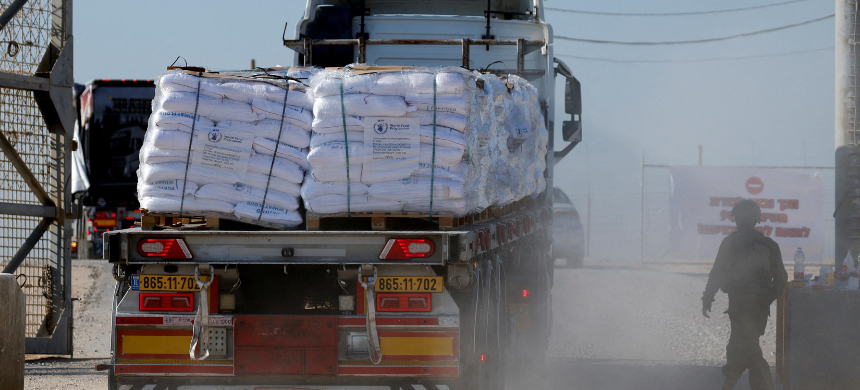Limited Humanitarian Aid Allowed into Gaza After Nearly Three Months Amid Escalating Crisis
Israel has permitted the first restricted delivery of humanitarian aid into the Gaza Strip since early March, ending a nearly three-month blockade amid growing international pressure and fears of mass starvation in the Palestinian territory.
On Monday, a small number of aid trucks entered Gaza through the Karem Abu Salem (Kerem Shalom) crossing, marking the first such shipment since the Israeli blockade tightened following the Hamas-led attacks on October 7. This resumption comes amid an ongoing intense Israeli military campaign that reportedly killed more than 150 Palestinians in the last 24 hours alone.
UN humanitarian chief Tom Fletcher welcomed the limited aid delivery but emphasized that it was far below what is urgently required. “It is a drop in the ocean of what is needed. Significantly more aid must be allowed into Gaza starting tomorrow morning,” Fletcher said.
The United Nations and aid agencies have repeatedly warned of catastrophic food insecurity affecting Gaza’s 2.3 million residents. The World Health Organization (WHO) recently declared that two million people in Gaza are at risk of famine. WHO Director-General Dr. Tedros Adhanom Ghebreyesus highlighted that 160,000 tonnes of food and critical medical supplies remain stranded just minutes away at the border, while attacks on hospitals further exacerbate the humanitarian crisis.
Since March 2, Israel imposed a complete blockade on Gaza following the October 7 attacks in southern Israel that killed over 1,100 people. Prior to the blockade, more than 500 aid trucks entered Gaza daily.
Israeli Prime Minister Benjamin Netanyahu acknowledged international “pressure from allies” to permit limited aid shipments, stating that even Israel’s “greatest friends” expressed concern about the emerging humanitarian disaster. Netanyahu stressed that the aid quantity would remain “minimal,” a stance sharply criticized by aid organizations and foreign governments.
The UN Secretary-General’s spokesperson, Stephane Dujarric, stressed that the current aid is “not enough” and is putting lives at risk, stating that UN officials have communicated these concerns directly to Israeli counterparts.
Read More: https://theneutral.pk/france-repatriates-priceless-balochistan-artifacts-smuggled-years-ago/
Internal Israeli Opposition and Global Backlash
Despite Netanyahu’s remarks, key members of his far-right coalition, including National Security Minister Itamar Ben-Gvir and Heritage Minister Amichai Eliyahu, opposed the limited aid decision, calling it a “grave mistake” and a “tragedy” that undermines Israel’s goal to defeat Hamas.
Critics accuse Israel of using starvation as a war tactic. The US-based Council on American-Islamic Relations denounced the delivery of nine trucks as an “insufficient, psychotic PR stunt” by what it called Netanyahu’s “genocidal government.”
International pressure continues to mount. Western allies such as the UK, France, and Canada condemned Israel’s restrictions on humanitarian aid in a joint statement warning of possible violations of international humanitarian law and threatening further actions, including targeted sanctions.
Additionally, foreign ministers from 22 countries, including Australia, Germany, Ireland, Japan, and Nordic nations, issued a joint appeal for the “full resumption of aid into Gaza immediately.”
No Progress on Ceasefire Talks
Meanwhile, efforts to negotiate a ceasefire between Israel and Hamas have stalled. Indirect talks held in Doha reportedly made no progress. Netanyahu indicated that proposals involving a ceasefire, hostage release, and Gaza’s demilitarization in exchange for Hamas exile were rejected by the militant group.
Continued Bombardment and Humanitarian Strain
Despite the partial reopening of the border, Israeli forces intensified military operations with heavy ground raids and numerous airstrikes, particularly targeting Khan Younis, where medical sources reported at least 84 deaths in one recent hour of bombings. Overall, more than 150 Palestinians were reported killed in the 24 hours prior.
Gaza’s health authorities were not informed ahead of the border reopening, complicating hospital preparedness. Medical facilities face overwhelming casualties amid critical shortages of fuel, medicine, and electricity, deepening the humanitarian emergency.











